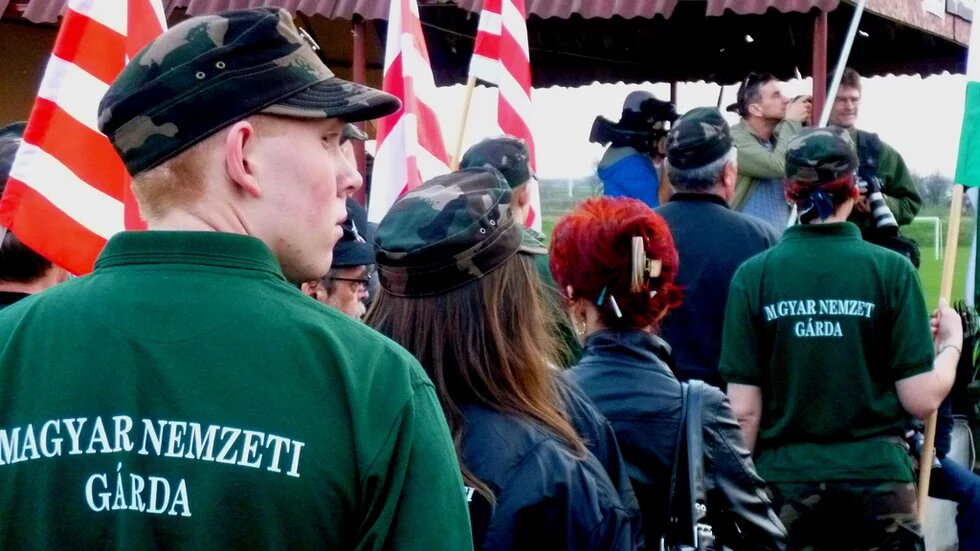
In the name of the “oppressed majority”
“Those who are not willing to integrate into Hungarian society and live by the values we stand for should leave the country” – declared Gábor Vona, the leader of the far right party Jobbik, at the demonstration organized on the 6th of March in the village of Gyöngyöspata. It was obvious who he had in mind, given the fact that members of the Civil Guard Association for a Better Future had been patrolling the area around the Roma settlement for a week, with the aim of preventing “Gypsy-criminals” from stealing and harassing “hard-working citizens”. The far right’s decision to symbolically take control of the village – located about an hour’s drive northeast from the capital – had been preceded by a long, at times vicious debate within Jobbik focused on the party’s political strategy. Tensions between “doves” and “hawks” – the former calling for a stronger focus on policy-work and suggesting some form of cooperation with Fidesz, the latter pushing for a return to the streets and advocating a stronger reliance on radical extra-parliamentary allies – had been palpable since the party entered parliament, but turned poisonous when it became clear that it was slipping back in opinion polls. The debate ended with the predictable victory of the hawks and the decision to re-shift focus to the “Roma question”, in view of drawing a clear distinction between the politics of Fidesz and Jobbik, and strengthening the latter’s radical voter base. All the Vona-team needed was a real-life conflict which would allow it to credibly argue its case for the need to protect “oppressed members of the defenseless majority”, and hate groups’ willingness to provide the foot-soldiers and action.
Click here to read the whole article.
Postscriptum:
After this article was published The election in Gyöngyöspata resulted in the unexpected victory of Jobbik's candidate, Oszkár Juhász, who (with 33,8 % of valid votes) easily beat the former vice-mayor (25,8 %), widely considered as the favorite of the election. The dramatic shift in people's political allegiances is demonstrated by the fact that Mr. Juhász had only received 5,8 % of votes in the municipal elections of October 2010. It is also worth mentioning that an independent entrepreneur who had been seen as an outsider came in third (21,4 %), most probably because she was known as a vocal advocate of disciplining "unruly Roma elements" (and had housed paramilitaries during the events). The strength of anti-Roma sentiment and the pivotal role it played in the election is also revealed by Defense Force captain Tamás Eszes's strong showing (10,5 %). Besides democratic candidates the biggest losers of the election were of course members of the Roma community. The president of the local Roma Self-government withdrew his candidacy in the last moment, but this was not enough to boost the score of the vice-mayor who had demonstrated a mimimum of sympathy for the concerns of the minority.
Kristóf Szombati program director at EcoPolis Foundation and co-founder of the green party LMP (“Lehet Más a Politika“).